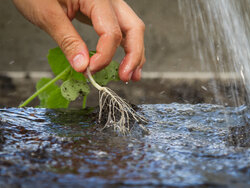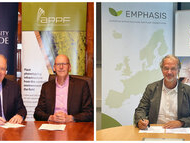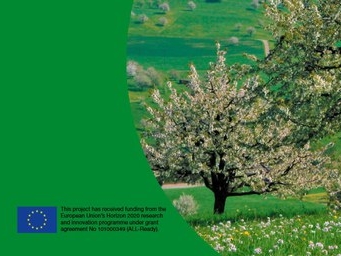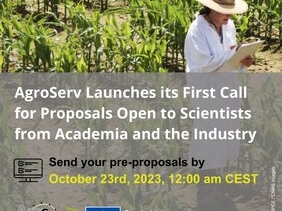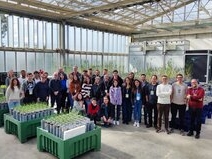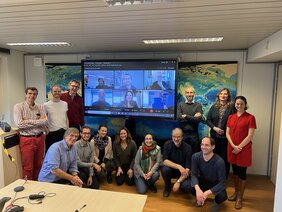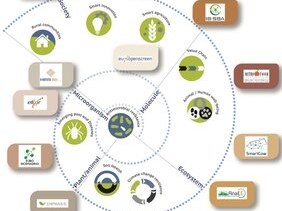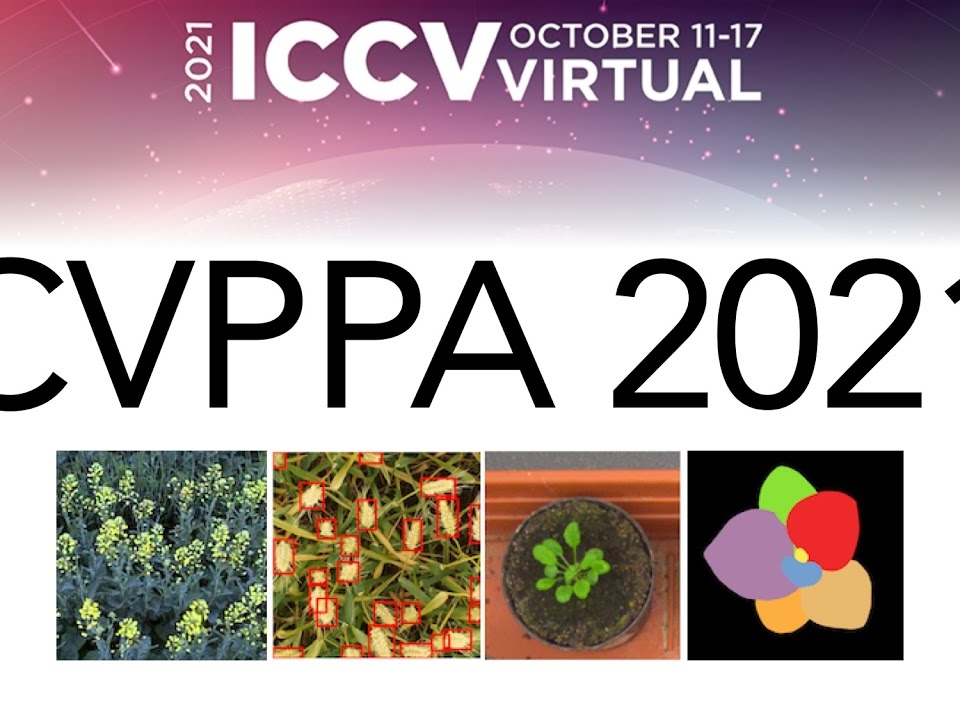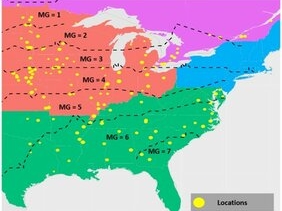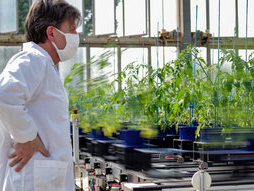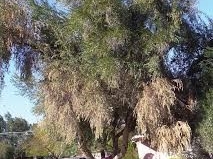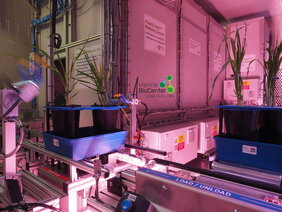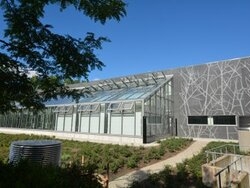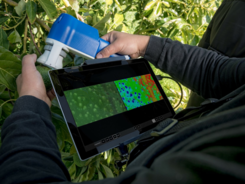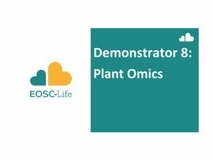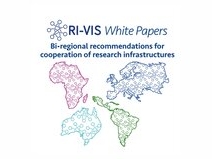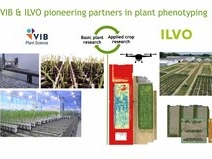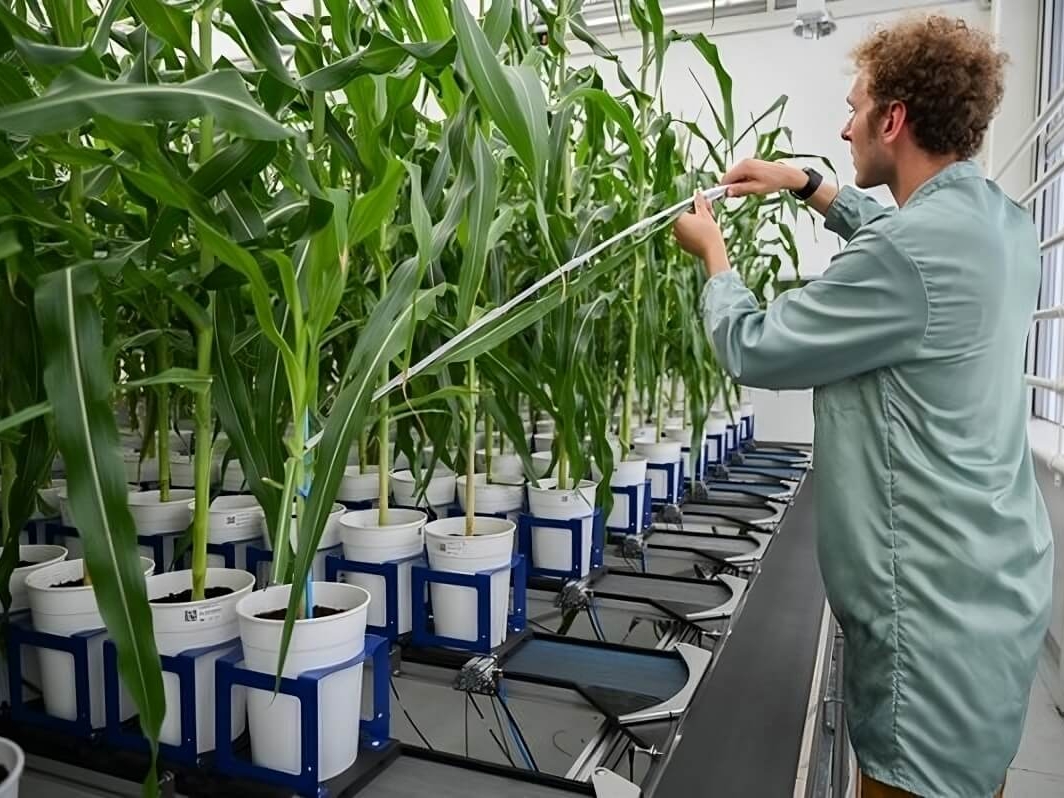SMART Plants for Tomorrow’s Needs
The Cluster of Excellence on Plant Sciences is a joint unit of Heinrich Heine University Düsseldorf, University of Cologne, Max Planck Institute for Plant Breeding Research Cologne and Forschungszentrum Jülich. CEPLAS is developing innovative science-based strategies for sustainable plant production. Our aim is to mechanistically understand complex plant traits of agronomic relevance that impact on yield and adaptation to limited resources.
What we offer
CEPLAS creates an international, interdisciplinary research environment. We offer a comprehensive training program for early career researchers tailored to your respective career level.
We are looking for
talented, highly motivated applicants with a doctoral degree (preferably recently completed) and a strong background in molecular plant sciences, genetics, quantitative biology, bioinformatics or a related discipline.
We invite applications for the following projects (detailed descriptions on www.ceplas.eu):
- Mechanisms and conservation of roles of trehalose 6-phosphate in plant developmental progression
- Just coincidence? How similar signals convey different information during systemic light signaling
- Identification and 3D modeling of gene regulatory networks that determine leaf anatomy and physiology in C3-C4 intermediate Brassicaceae.
- Genetic and physiological characterization of a novel leaflet number QTL in C. hirsuta
- Photosynthesis phenomics
- Computational modeling of Fe-regulatory networks
- Antimicrobial effectors secreted by plant-colonizing fungi and their impact on microbial communities in natural soils
- Host-specific regulation of effector gene expression in mutualistic root endophytic fungi
- Non-invasive genetic mapping of nutrient-related root responses with single-cell resolution
- Metabolic interactions of plants and root-associated microbes via the pipecolate pathway
- DryCell – uncovering the cell biology of desiccation and rehydration in plant roots
- Reconstruction of carbon allocation towards multiple plant cell wall sinks in yeast and cyanobacteria
- Synthetic leaf-like structures to study differentiation and developmental trajectories/programs
- Synthetic biology reconstruction and optogenetics approach towards a quantitative analysis of plant signalling networks
- Towards a synthetic leaf – vasculature pattern
- Haplotype diversity of cultivated potato
- Modelling the crosstalk between phytohormone signalling and metabolism
- Impact of drought on the secondary cell wall of poplar xylem, a multidisciplinary approach
- DeepCRE – deep learning applications for identification and functional annotation of cis-regulatory elements in crops
- The contribution of off-target transcription factor binding site on covariation between seed dormancy and flowering time
- A multi-scale model to predict productivity improvements from modifications of plant anatomy, resource allocation, and protein activities
Application process
The place of employment is defined by the respective research project. According to the applicant’s personal qualification and the institution, employment will be based on salary group 13 TV-L/13 TVöD-Bund. Qualified candidates should send their application (cover letter (including motivation statement and indicating which project(s) the application refers to), CV, publication list, contact info of two references, PhD certificate) citing reference number 129.22-3.1 no later than 06.06.2022 by e-mail (one single pdf-file) to application@ceplas.de.
In principle, the employments can also take place part-time, if no compelling official reasons are opposed in an individual case. All participating institutions are equal opportunity employers and strive for gender equality and diversity. Applications from individuals with backgrounds that are underrepresented in MINT disciplines are expressly welcome. Women with comparable qualifications will be considered preferentially. Applications from suitably qualified severely disabled persons or people of equivalent status according to Book IX of the German Social Legal Code (SGB – Soziales Gesetzbuch) are encouraged. Severely disabled applicants of equal merit and qualifications will be given priority.
October 23, 2024
2nd OSCARS Open Call for Open Science projects & services – LAUNCH EVENT – 15 November 2024
We are pleased to invite you to the launch event of the OSCARS 2nd Open Call for Open Science projects and services, to be held…
October 22, 2024
European Life Science RIs Position Paper on FP10
Driving Innovation and Collaboration: A Strategic Vision for European Life Science Research Infrastructures in Framework…
September 17, 2024
PHENET & IPPN Coffee sessions
Announcement of Coffee session series: Are you focusing on plant phenotyping or envirotyping topics in your research and…
July 2, 2024
AgroServ’s Second Call for Proposals is Now Open!
We are excited to announce the opening of AgroServ’s second call for proposals. AgroServ provides access to 143 services from…
February 20, 2024
Horizon Europe-funded MICROBES-4-CLIMATE project kicks-off
31 Partners from 13 Countries unite to address climate change risks for biodiversity and for agricultural and forestry…
December 15, 2023
New Call for European Research Projects towards agroecology
The partnership AGROECOLOGY, pre-announcing upcoming call on “Fostering agroecology at farm and landscape levels”
December 11, 2023
Discuss how to make the best use of FLEX data on January 18, 2024 in Bonn!
Learn more about solar-induced fluorescence, an innovative method of remote sensing, and participate in the workshop "Potential…
December 11, 2023
PHENET training course on February 15, 2024
The next PHENET training course is in cooperation with de.NBI (German Network for Bioinformatics Infrastructure) and FAIRAgro.…
December 4, 2023
International collaboration targets global food challenges
The memorandum of understanding formalises a commitment to cooperation in enabling crop improvement via advancements in plant…
November 27, 2023
6th Call for Trans-national Access – Beyond Atmospheric Science
The 6th ATMO Transnational Access call opened this week until 31 January 2024 and focuses on multidisciplinary projects, which…
November 20, 2023
ALL-Ready – The EU Agroecology Living Lab and Research Infrastructure Network
The ALL-Ready pilot network is essentially a small-scale testbed to experiment, and to provide feedback on the various tools,…
November 14, 2023
IPPS2024
The next International Plant Phenotyping Symposium, IPPS2024 will take place from October 07. – 11. 2024, in Lincoln…
November 3, 2023
EPSO Young Plant Scientist Award 2024
The awards will cover registration (waived by the Local Host) and travel (economy, max. 400 €, reimbursed by EPSO) to the…
September 20, 2023
AgroServ – First Call for Proposals Open to Scientists from Academia and the Industry
The Horizon Europe project AgroServ, with the participation of EMPHASIS, is pleased to announce the official launch of its…
May 8, 2023
EMPHASIS training on affordable phenotyping in Matera-Metaponto, Italy
It enabled an in depth discussion between the course participants and plant phenotyping experts from EMPHASIS member countries.
March 16, 2023
SusCrop / FoPD video contest on sustainable crop production
National funders in the European Research Area Network on Sustainable Crop Production (SusCrop ERA-net) opened the video…
February 22, 2023
IPPS Research Topic in frontiers
IPPS 2022 - Plant Phenotyping for a Sustainable Future: IPPN, together with WUR, has launched a research theme on borders.
February 22, 2023
NANYANG TECHNOLOGICAL UNIVERSITY – Research Fellow (High-Throughput Plant Phenotyping)
MCF-2023-0059253
February 22, 2023
First AI4Life Open Call
With this Open Call, we want to reach out to life scientists that need help to improve their image analysis workflows, data,…
February 15, 2023
Call for contributions to a special Issue: Phenotyping functional traits in plants
Plant phenotyping has seen rapid development in methods and technologies over recent decade leading to the establishment of…
February 14, 2023
European research and innovation programmes 2014-2027
The public consultation on the EU’s Horizon research and innovation programmes 2014-2027 will be open until 23 February. This…
January 24, 2023
EPSO Young Plant Scientist Award 2023
The European Plant Science Organisation wishes to encourage the development of ideas and imaginative thinking in the plant…
January 17, 2023
EMPHASIS Implementation Project „EMPHASIS-GO” has started
Once operational, EMPHASIS is intend to provide multiple high-level services for the plant phenotyping and related communities…
November 30, 2022
Phenet
Europe urgently needs to find pathways towards agroecological transition of agroecosystems in support to food security, climate…
September 26, 2022
IPPS 2022
7th International Plant Phenotyping Symposium - Conference Dates (incl. pre- & post-conference dates): September 26-30, 2022
June 29, 2022
New book: Advances in plant phenotyping for more sustainable crop production
The book reviews the wealth of research on advances in plant phenotyping to meet this challenge, including new technologies…
March 7, 2022
EMPHASIS contributes to European project AI4Life on Artificial Intelligence
Machine learning (ML) has enabled and accelerated frontier research in the life sciences, but democratised access to such…
March 1, 2022
EMPHASIS contributes to European project AgroServ on Agroecology
The Horizon Europe project AgroServ, led by AnaEE and CNRS, gathers more than 70 partners and has recently been granted of 15M€…
December 6, 2021
EOSC-Life: Workflowhub
November 10, 2021
Computer Vision in Plant Phenotyping and Agriculture (CVPPA) Workshop at ICCV 2021
This workshop plans to showcase the challenges raised by working on computer vision for plant phenotyping and agriculture.…
September 15, 2021
Opinion Paper: EU Consortium calls for “Designing the Crops for the Future; The CropBooster Program”
The authors call for international action and propose a pan-European research and innovation initiative, the CropBooster…
September 10, 2021
MLCAS2021 launches Crop Yield Prediction Challenge
In this competition, you will utilize a dataset consisting of 103,365 performance records over 13 years and 150 locations with…
September 9, 2021
Wheat Initiative gains new coordinator from Julius-Kuehn-Institute for their Alliance for Wheat Adaption to Heat and Drought (AHEAD) program
In 2021, the Wheat Initiative welcomes Dr. Stefanie Hagemann, as the new AHEAD Global Coordinator. Dr. Hagemann started working…
August 30, 2021
Wheat Initiative call for best phenotyping webinar in WEBINAR COMPETITION
WHEAT PHENOTYPING & ABIOTIC STRESS TOLERANCE: LATEST APPROACHES & FINDINGS
August 30, 2021
Wheat Initiative calls for your (wheat) research video in their VIDEO COMPETITION
WHEAT PHENOTYPING AND ABIOTIC STRESS TOLERANCE: FROM THE BENCH TO THE FIELD, FROM VISUAL SCORES TO ROBOTICS
August 19, 2021
New Special Issue in Plant Phenomics
Plant Phenomics, a Science Partner Journal, is now accepting submissions for a special issue titled Advances in Proximal…
June 23, 2021
Final EPPN2020 call for transnational access now closed
The EPPN2020 project has provided transnational access for researchers from public and private sectors from Europe and beyond…
June 23, 2021
Greece: Intelligent system to monitor health of olive groves
Verticillium wilt is a major problem for olive growth and very difficult to detect at early stages of infestation. The project…
June 23, 2021
Austria: New high-throughput phenotyping platform at Vienna BioCenter Core Facilities (VBCF)
The PHENOPlant phenotyping platform is designed for non-invasive, morphometric and physiological high-throughput phenotyping of…
June 14, 2021
Sweden: A virtual tour of the Biotron at SLU Alnarp
On 27 May 2021, NordPlant organized a virtual tour of the Biotron at SLU Alnarp. The Biotron is a facility for modern plant…
May 4, 2021
Italy: Successful first Phen-Italy call for access to plant phenotyping infrastructures
Great success of the Phen-Italy call for access to the Italian plant phenotyping infrastructures! More than twenty applications…
April 12, 2021
Greece: Lab-in-the-field, multi-spectral imaging technology for early warning of plant stress and pathologies
The Mediterranean Agronomic Institute of Chania, the Hellenic Agricultural Organization Dimitra and QCELL, the inventor of…
April 6, 2021
New tools for data sharing in plant research
Three new data management tools designed to help plant researchers with data analysis, visualisation and integration following…
March 25, 2021
Italy: Phen-Italy launches first call for access to national phenotyping infrastructures
The Italian Plant Phenotyping Network Phen-Italy has launched a call to fund access to plant phenotyping participating…
March 25, 2021
EOSC-Life publishes midterm Achievements Brochure
The European Open Science Cloud project EOSC-Life, which EMPHASIS participates in, has just published a digital brochure…
February 18, 2021
RI-VIS publishes three white papers on international cooperation between research infrastructures
As part of the RI-VIS project, a team of European research infrastructures, led by EMPHASIS, has just published three white…
February 16, 2021
Belgium: VIB and ILVO jointly obtain regional funding to establish the ‘EMPHASIS-Belgium’ consortium as national node of EMPHASIS
With the ambition of “phenotyping future crops”, a new consortium - EMPHASIS-Belgium - has been established as the Belgian node…
February 10, 2021
Plant Phenotyping for a Sustainable Future
Contributions to the special issue are welcome and may include research papers as well as review articles. Authors should…
February 10, 2021
Present your research to the community: PhenomicsWebinars relaunch in new format
Now open: abstract submission for the upcoming season of the newly revised PhenomicsWebinars series on plant phenotyping.
February 5, 2021
RI-VIS Publishes White Paper on African-European Research Infrastructure Cooperation
A team of European research infrastructures, led by EMPHASIS, has published a White Paper entitled "Recommendations towards…
February 4, 2021
What kind of bioinformatics do plant scientists need?
Your input is needed: the German Network for Bioinformatics Infrastructure de.NBI would really appreciate if you could take a…
January 29, 2021
Special Issue: “From Phenotyping to Phenomics—Techniques for Exploring Plant Traits and Diversity”
This Special Issue aims to bring together a range of research papers that cover plant phenotyping at large-scale from hundreds…
January 6, 2021
Belgium: VIB acquires CropDesign site from BASF and launches its first agricultural biotechnology incubator
VIB, a leading life sciences institute in Flanders, has signed an agreement with BASF to acquire its CropDesign site in Nevele,…
Get involved
Lorem ipsum dolor sit amet, consectetur adipiscing elit, sed do eiusmod tempor incididunt ut labore et dolore magna aliqua.






